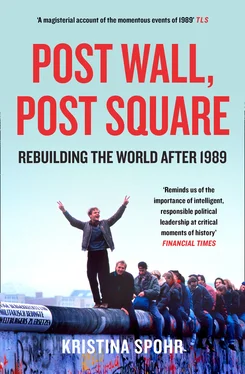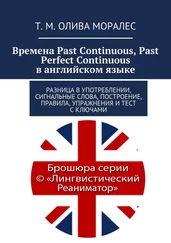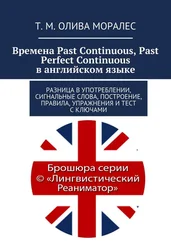To achieve reform and rejuvenation, Gorbachev had to reduce the burden of the military-industrial complex on the Soviet economy, intensified during the 1980s by the war in Afghanistan and the spiralling arms race with America.
To be sure, the Soviet command economy was performing poorly simply for structural reasons – a fact masked by the global oil price rise of the 1970s and the country’s vast Siberian reserves which fuelled a GDP growth rate of 2–3.5% between 1971 and 1980. But when the oil price dropped in the next decade, national income fell sharply. Indeed, in 1980–5 the USSR found itself at near zero growth. The increasing dissatisfaction of Soviet consumers was exacerbated by declining living standards and limited access to high-tech civilian goods. This was due in part to the inflexibility of the planned economy and the lack of industrial modernisation, but the root problem was that perhaps up to a quarter of GDP was being gobbled up by the military sector to the detriment of the civilian production.[8]
In order to galvanise the economy at home while slowly opening it up to the outside world, Gorbachev needed to foster a stable international environment and also to address the USSR’s ‘imperial overstretch’ in Eastern Europe and the developing world. This meant reducing US hostility (disengaging from the arms race) and making compromises in the Third World (including ideological recognition of the right to self-determination). So domestic policy was inextricably bound up with foreign policy. Seeking a less confrontational relationship with the United States, Gorbachev was keen to talk with his American opposite number.[9]
At first glance, however, US president Ronald Reagan seemed an unlikely partner. Born in 1911, and so the same age as the man Gorbachev had just replaced, Reagan was a vehement anti-communist who had intensified the arms race once he came to power in 1981. He was notorious for his denunciation of the USSR as an ‘evil empire’ and for his prediction that the ‘march of freedom and democracy’ would ‘leave Marxism–Leninism on the ash heap of history’.[10] This all-out ideological competition, he believed, justified the military build-up of his early years. But there was another side to Reagan – the would-be peacemaker, who saw military power as a basis for diplomacy to secure ‘peace through strength’. Even more surprising, this hard-headed realist cherished a utopian belief in a nuclear-free world.[11]
During his first term, Reagan had been unable to initiate dialogue with the sick old men of the Kremlin. But with the accession of Gorbachev, not merely dialogue but negotiation suddenly became possible. Over the course of four summits between Geneva in November 1985 and Moscow in May/June 1988 the discussions were often heated but the two leaders gradually forged a relationship based on personal trust and even affection. Gorbachev’s radical nuclear arms-reduction proposals at Reykjavik in October 1986 – six months after the horrendous Chernobyl accident – almost carried Reagan along with him, to the horror of some die-hard advisers. By the time of their Washington meeting in December 1987 they had moved on to first-name terms. There was also substance in the new relationship. At Washington, Reagan and Gorbachev signed away a whole category of nuclear weapons in the Intermediate Nuclear Forces Treaty – the first time the superpowers had ever agreed to reduce their nuclear arsenals. Here was a significant step in defusing the Cold War, making it less likely that a nuclear conflict would break out. Atomic scientists put back their celebrated ‘Doomsday Clock’ to six minutes before midnight, instead of three. And on 31 May 1988, when Reagan was asked in Red Square whether he still felt the USSR was an ‘evil empire’, he replied ‘I was talking about another time, another era.’[12]
Reagan was moving on – and so was Gorbachev. Six months later, the dramatic address at the UN on the morning of 7 December was for the Soviet leader a ‘watershed’ moment. He wanted to present himself as a shaper of international affairs but, unlike Churchill, moving the world out of the Cold War. And he was keen to wrong-foot the Americans, especially at a time of transition between presidents when their foreign policy would be in limbo. ‘The Americans are scared that we might do something as in the spirit of Reykjavik.’ He had been preparing the speech for months, ever since Reagan’s visit, and it went through many drafts, being tweaked right up to the last minute. Gorbachev was determined to use the occasion to show the world his belief in the bright future of the rejuvenated Soviet Union and to confirm his credentials as a visionary peacemaker. And he hoped that by setting out his new political thinking in such an eye-catching way he would secure Western credits and economic assistance.[13]
By the time Gorbachev arrived at the UN, the vast General Assembly Hall was totally packed, with all 1,800 seats occupied. There was a buzz of excited chatter. Expectations were high. Gorbachev stepped up to the podium, dressed in a dark, well-tailored suit, white shirt and burgundy-coloured tie. At the start of his address, he spoke slowly and deliberately but then gathered pace, with increasing sweep and authority. In doing so, he set out his ideological blueprint for how Marxism–Leninism should evolve and how the world should extricate itself from the Cold War.[14]
He began with remarks that drew together Western and Eastern European history around the revolutionary idea: ‘Two great revolutions, the French Revolution of 1789 and the Russian Revolution of 1917, have exerted a powerful influence on the actual nature of the historical process and radically changed the course of world events. Both of them, each in its own way, have given a gigantic impetus to man’s progress.’ Having detoxified revolution and established common ground across the divided continent, Gorbachev expatiated on the universality of human experience – ‘today we have entered an era when progress will be based on the interests of all mankind’ – and insisted that further progress was possible only through a truly global consensus, in a movement towards what he called ‘a new world order’. If that were so, he added, ‘then it is also worth agreeing on the fundamental and truly universal prerequisites and principles for such activities. It is evident, for example, that force and the threat of force can no longer be, and should not be, instruments of foreign policy.’ Here was an explicit renunciation of the ‘Brezhnev Doctrine’ – Moscow’s claimed right to deploy the Red Army within its own sphere of influence to save a fellow communist state – that in 1968 had justified the use of tanks to crush the Prague Spring. Instead, considering the ‘variety of sociopolitical structures’, he declared ‘freedom of choice’ to be a ‘universal principle’ that knows ‘no exception’.[15]
So Gorbachev was thinking big, way beyond the conventional bipolarities of East versus West. After more than forty years of Cold War, he was explicitly advocating the ‘de-ideologisation of interstate relations’ and thereby declaring an end to Third World interventionism. Indeed, with the world as a whole now seriously tackling hunger, disease, illiteracy and ‘other mass ills’, he argued for recognising ‘the primacy of the universal human idea’. Nevertheless, he did not intend to abandon Soviet values: ‘The fundamental fact remains that the formation of the peaceful period will take place in conditions of the existence and rivalry of various socio-economic and political systems.’ However, he went on, ‘the meaning of our international efforts, and one of the key tenets of the new thinking, is precisely to impart to this rivalry the quality of sensible competition in conditions of respect for freedom of choice and a balance of interests’. So the two systems would not blur into each other, but their relationship would become one of peaceful ‘co-development’. In this way, working together, the superpowers would be able to ‘eliminate the nuclear threat and militarism’ whose eradication was essential for world development and the survival of the human race.
Читать дальше












